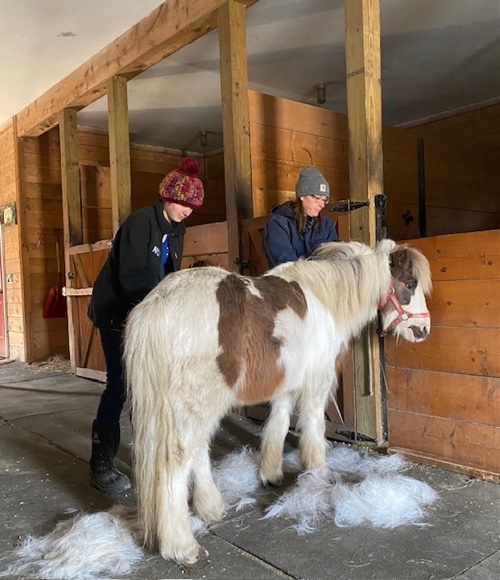Embracing Self-Care
As a Mental Health Professional, I bring up the concept of self-care with people on a daily basis. Although the majority of people I talk to have an idea of what self-care is, the most common responses I get are “I don’t have time to fit in self-care”, “I do a little but I know I should do more”, or “I’m not sure how”.
Many people have expressed feeling overwhelmed by the idea of self-care as they see it as having to find the time in their already busy lives to do something else or having to make a change in their routine that feels daunting or overwhelming. Self-care does not have to be time consuming and can be practiced by making small changes to your daily routine.
Implementing change in small increments by making one change or adding one thing to a routine each week or month can make change feel more manageable. Change takes time and giving oneself grace and patience when making changes in one's life will help with overall progress.
Self-care is the practice of taking care of your physical, mental, emotional, and spiritual health. If practiced consistently it can improve sleep, decrease stress and anxiety, and improve physical health. Self-care can be divided into seven pillars, which can vary depending on what resource you look at.
Many people have expressed feeling overwhelmed by the idea of self-care as they see it as having to find the time in their already busy lives to do something else or having to make a change in their routine that feels daunting or overwhelming. Self-care does not have to be time consuming and can be practiced by making small changes to your daily routine.
Implementing change in small increments by making one change or adding one thing to a routine each week or month can make change feel more manageable. Change takes time and giving oneself grace and patience when making changes in one's life will help with overall progress.
Self-care is the practice of taking care of your physical, mental, emotional, and spiritual health. If practiced consistently it can improve sleep, decrease stress and anxiety, and improve physical health. Self-care can be divided into seven pillars, which can vary depending on what resource you look at.



For the purpose of this article, I have chosen to focus on the following pillars of self-care:
1. Knowledge and Health Literacy: Understanding your body and being educated on what it means to be healthy both physically and mentally is extremely important. The more a person understands why their doctor’s might recommend certain things or why they might feel the way they do, the more control they can take over their lives.
2. Mental Well-being: This refers to how a person experiences life satisfaction, a sense of optimism, self-esteem, feeling in control, feeling a sense of purpose, and having a sense of belonging and support. Learning healthy ways to cope with emotions can change a person’s mindset and decrease stress. Having a more positive mindset can affect how you feel throughout the day and make life more manageable. Managing emotions and changing your mindset can be as simple as taking a deep breath, taking a small walk, or quickly journaling what you are feeling. Attending therapy can be a great way to increase a person’s mental wellbeing if you are struggling in this area.
3. Physical Activity: The simple act of moving our bodies can help our physical health, decrease stress, and increase our mood. This does not mean you have to go out and start an exercise program tomorrow. Start by adding stretches into your day or taking a short walk during your lunch break.
4. Healthy Eating: Eating a healthy diet can help a person have more energy, look and feel physically healthier and contributes to increased and balanced mood. Eating healthy can look different for everyone and making changes to your diet can be a daunting task. Start with something manageable, such as drinking more water every day or adding more vegetables to your diet.
5. Risk Avoidance: Self-care is also about doing things to protect yourself, because you are worth protecting. This might mean avoiding drugs and alcohol, wearing a seatbelt when you are in a vehicle, putting on sunscreen, or wearing a helmet.
6. Good Hygiene: Having good hygiene helps to decrease the spread of disease and in general makes us feel better about ourselves. Even though we all know this is important, it is often the first thing to start slipping when we are feeling depressed or stressed. Having a good hygiene routine can help with this process. Make time in your schedule to take a shower or bath, brush your teeth at least twice a day, wash your hands before handling food, put on a clean pair of clothes, etc ...
7. Rational Use of Products and Services: This refers to using products and services in the way they are designed. Take medications as prescribed, follow the directions of packaging, do your research and choose products that are safe and ethical, and follow all safety rules when using equipment such as gym equipment and power tools.
Remember, self-care does not need to be stressful or daunting and you are worth taking some time out of your day to take care of you.
1. Knowledge and Health Literacy: Understanding your body and being educated on what it means to be healthy both physically and mentally is extremely important. The more a person understands why their doctor’s might recommend certain things or why they might feel the way they do, the more control they can take over their lives.
2. Mental Well-being: This refers to how a person experiences life satisfaction, a sense of optimism, self-esteem, feeling in control, feeling a sense of purpose, and having a sense of belonging and support. Learning healthy ways to cope with emotions can change a person’s mindset and decrease stress. Having a more positive mindset can affect how you feel throughout the day and make life more manageable. Managing emotions and changing your mindset can be as simple as taking a deep breath, taking a small walk, or quickly journaling what you are feeling. Attending therapy can be a great way to increase a person’s mental wellbeing if you are struggling in this area.
3. Physical Activity: The simple act of moving our bodies can help our physical health, decrease stress, and increase our mood. This does not mean you have to go out and start an exercise program tomorrow. Start by adding stretches into your day or taking a short walk during your lunch break.
4. Healthy Eating: Eating a healthy diet can help a person have more energy, look and feel physically healthier and contributes to increased and balanced mood. Eating healthy can look different for everyone and making changes to your diet can be a daunting task. Start with something manageable, such as drinking more water every day or adding more vegetables to your diet.
5. Risk Avoidance: Self-care is also about doing things to protect yourself, because you are worth protecting. This might mean avoiding drugs and alcohol, wearing a seatbelt when you are in a vehicle, putting on sunscreen, or wearing a helmet.
6. Good Hygiene: Having good hygiene helps to decrease the spread of disease and in general makes us feel better about ourselves. Even though we all know this is important, it is often the first thing to start slipping when we are feeling depressed or stressed. Having a good hygiene routine can help with this process. Make time in your schedule to take a shower or bath, brush your teeth at least twice a day, wash your hands before handling food, put on a clean pair of clothes, etc ...
7. Rational Use of Products and Services: This refers to using products and services in the way they are designed. Take medications as prescribed, follow the directions of packaging, do your research and choose products that are safe and ethical, and follow all safety rules when using equipment such as gym equipment and power tools.
Remember, self-care does not need to be stressful or daunting and you are worth taking some time out of your day to take care of you.

Kathy Peters, LICSW
Program Director/Mental Health Professional at Stable Connections and has over 20 years of experience working in the mental health field.
Program Director/Mental Health Professional at Stable Connections and has over 20 years of experience working in the mental health field.


